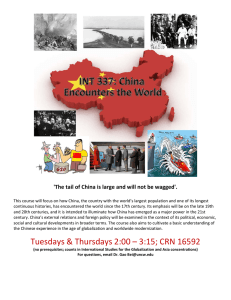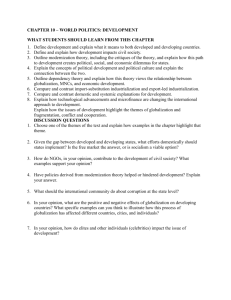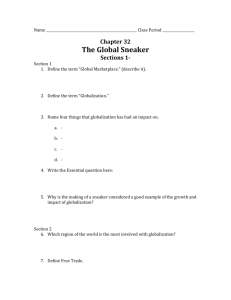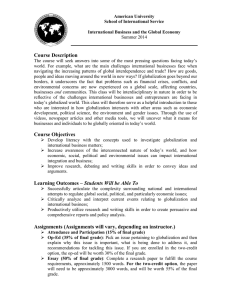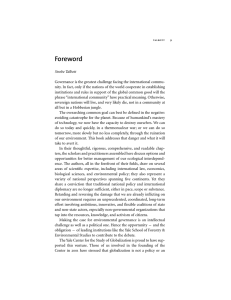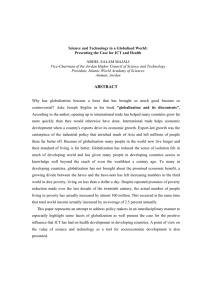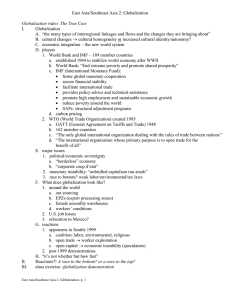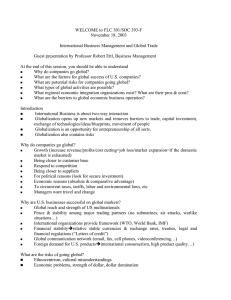Global Issues in the Classroom: Education & Globalization
advertisement
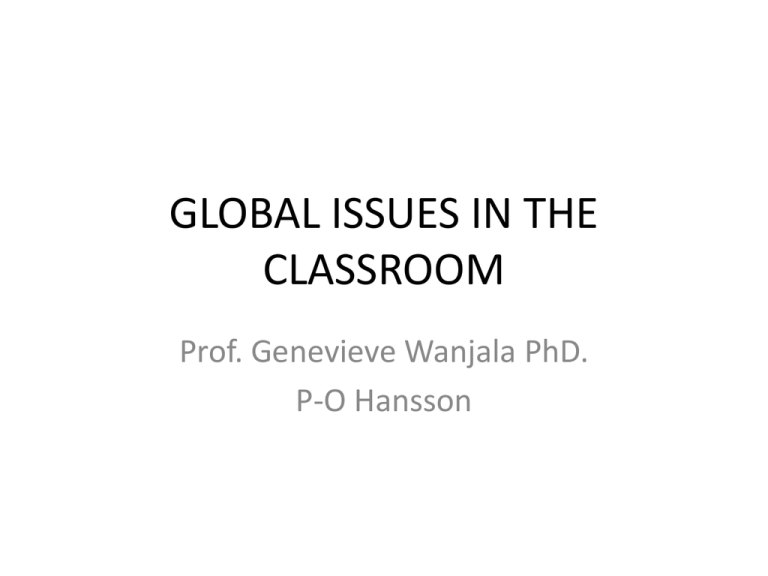
GLOBAL ISSUES IN THE CLASSROOM Prof. Genevieve Wanjala PhD. P-O Hansson INTRODUCTION • How and to what extent do these regional and global interactions affect the behavior of those of us who are involved in education ; particularly our behavior in the classroom? To answer this question appropriately , we need to have a clear understanding of what globalization really is. GLOBALIZATION DEFINED • globalization can be used to refer to those spatial and temporal processes of change which underpin a transformation in the organization of human affairs by linking together and expanding human activity across regions and continents. [WIKIPEDIA] • a process of world shrinkage of distance getting shorter and things moving closer [Larson] GLOBALIZATION AND EDUCATION • The quality and quantity of education determine whether and how a country can participate in the processes of globalization. Slowly and surely , a type of education has been appearing in our pronouncements and policy documents , that is , global education. What , then , are the global issues in the classroom? GLOBAL ISSUES IN THE CLASSROOM • • • • • create global citizens knowledge and understanding values and attitudes skill and processes action and participation TEACHING WITH A GLOBAL PERSPECTIVE • Learning Processes • To what extent do we have inclusive classrooms where we encourage participation for all? • What methods/techniques do we use to do this? [Student-centred learning ? Experiential learning? Inquiry-based learning?] • How do facilitate Inter-activity ; building self esteem? TEACHING WITH A GLOBAL PERSPECTIVE CONTD. • Dealing with controversial issues • How do we facilitate students to balance study with critical appraisal ? • How do we enable students to develop individual informed opinions? • How do we ensure students acquire skills to formulate arguments using evidence? • How do we nurture students’ commitment to human rights? TEACHING WITH A GLOBAL PERSPECTIVE CONTD • Practising active citizenship To what extent do facilitate students’ • involvement in community activities and campaigns? • identify , investigate and evaluate alternative courses of action? • devise strategies to overcome barriers to active participation? • reflect and evaluate effectiveness of action?

